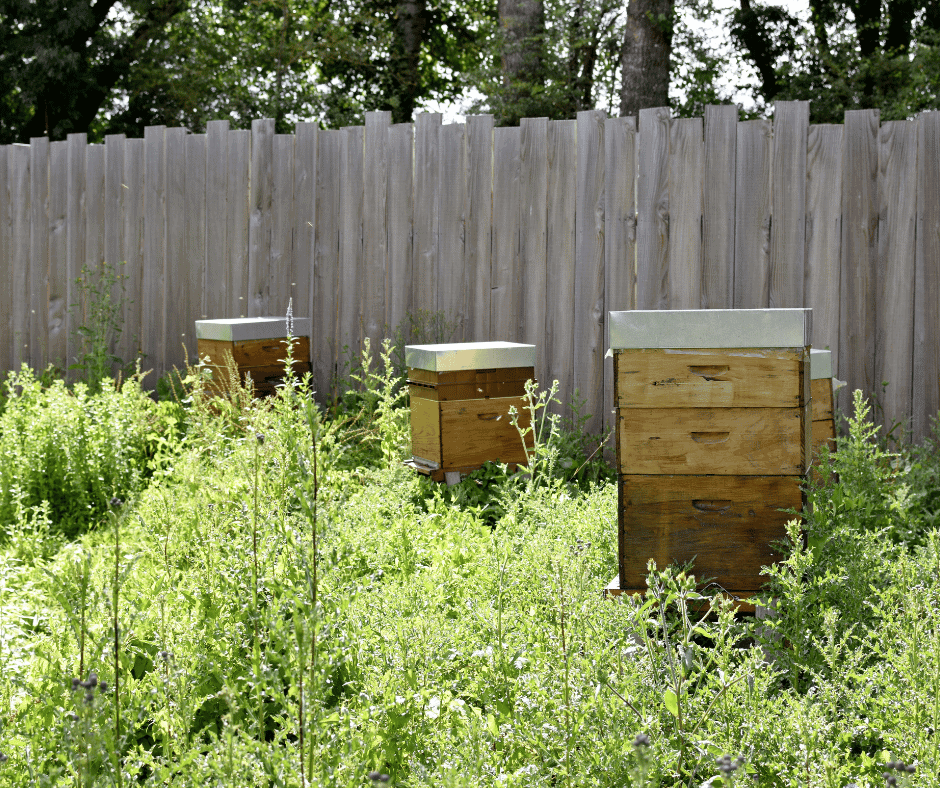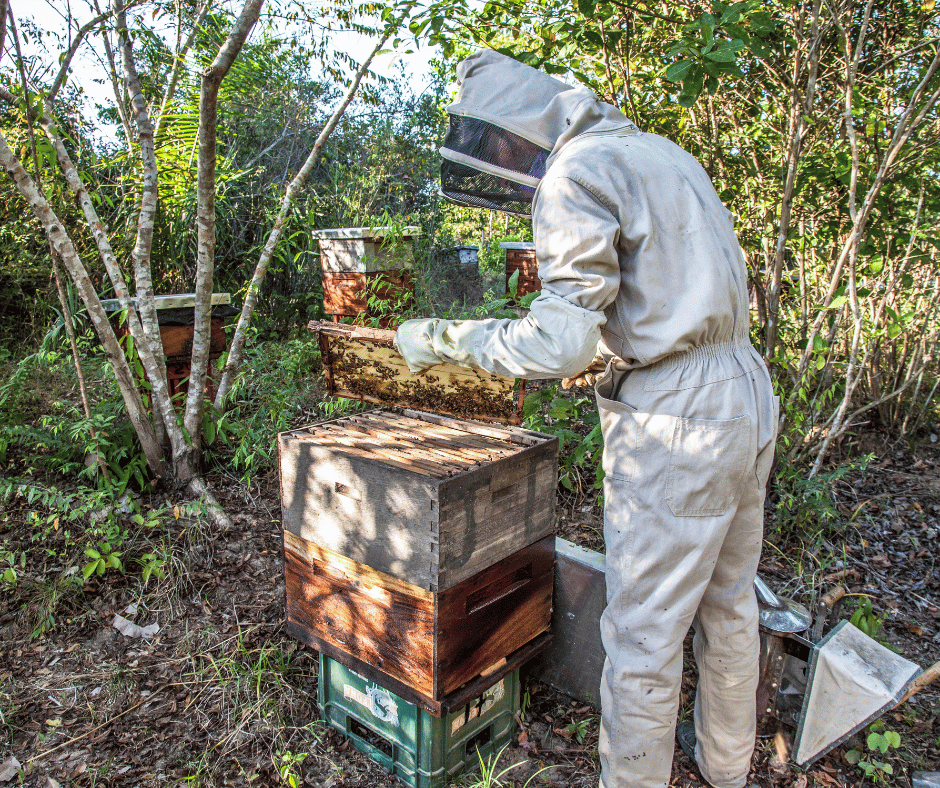
Welcome to our blog article about the fascinating world of bees! Have you ever been stung by a bee and wondered why? Or perhaps you’ve heard stories of people being attacked by swarms of bees, but never understood why. So you maybe asking yourself, ‘Do bees sting for no reason?’
In this article, we will be uncovering the mysteries behind bee behavior and discovering the reasons behind their stings. We will explore what makes them sting and how to avoid it in future encounters.
By gaining insight into these creatures’ world, we can better understand them and appreciate their role in nature. So let’s dive right in!
Have you ever wondered why bees sting? It’s a common misconception that they do it for no reason, but the truth is that there are actually several reasons why bees may feel the need to defend themselves.
First of all, let’s start by understanding what makes a bee so defensive in the first place. Bees have an incredibly important job: pollinating flowers and plants to help them grow and reproduce. This means they must protect their hives from any potential threats or dangers.
Bees also have very sensitive eyesight which can be easily triggered by sudden movements or loud noises near them – this could cause them to become agitated and potentially attack if they feel threatened enough.
Additionally, some species of bee may be more aggressive than others due to genetics; Africanized honeybees are known for being particularly defensive when protecting their hives!
It’s also worth noting that female worker bees (the ones with stingers) only live around 6 weeks during summer months; this means that when we come into contact with one as it goes about its daily duties collecting nectar and pollen from flowers, it might not necessarily want to harm us but instead is simply trying to protect itself before its time runs out!
Finally, remember that while most stings occur because we get too close without realizing how much space we should give these buzzing little creatures – sometimes accidents happen regardless of our best intentions!
So next time you see a bee nearby don’t panic – just keep your distance until it moves away again safely on its own accord.
Table of Contents
Discovering the Reasons Behind Bee Stings

Have you ever wondered why bees sting? It’s a common question that many of us have asked ourselves at some point in our lives. While it may seem like they do it for no reason, there are actually several reasons behind bee stings.
First and foremost, bees sting to protect their hive and the queen bee inside. If a person or animal gets too close to the hive, the worker bees will swarm around them and attempt to drive them away with their stings. This is an instinctive behavior meant to keep predators away from their homes and ensure their safety.
Bees also sting when they feel threatened or provoked by something nearby – such as loud noises or sudden movements – which can startle them into attacking whatever caused the disturbance in order to defend themselves against potential danger.
Additionally, if someone steps on a bee accidentally while walking through grassy areas where hives might be located, this could also lead to an attack out of fear or surprise from being stepped on unexpectedly!
Finally, some people may be allergic (or hypersensitive)to certain types of pollen that can cause reactions when coming into contact with skin – leading bees who come across these individuals during pollination season more likely than not going straight for defense mode rather than just flying away peacefully!
Overall understanding why bees sting is important so we can better protect ourselves from getting hurt by one – but it’s also important because we need these incredible creatures in our environment for pollination purposes!
So next time you see one buzzing around your garden remember: they’re just trying to do what comes naturally!
Uncovering the Mysteries of Bee Behavior

Have you ever wondered why bees sting? It’s a fascinating question that has puzzled scientists for centuries. But now, thanks to advances in technology and research, we’re starting to uncover the mysteries of bee behavior.
Bees are incredibly important pollinators and play an essential role in our ecosystem. They have complex social structures and communicate with each other through various signals like pheromones, vibrations, scents, colors, and even dances!
By studying these behaviors more closely we can gain insight into how they interact with their environment – including us humans!
Understanding the reasons behind bee stings can help us better protect them (and ourselves) while still enjoying all the benefits they bring us such as honey production or pollination services.
Exploring Why Bees Sting and How to Avoid It

Have you ever wondered why bees sting and how to avoid it? It’s a common question, especially for those of us who love spending time outdoors.
The truth is that bees do not sting without reason. They usually only use their stinger as a last resort when they feel threatened or disturbed in some way.
This could be anything from an animal getting too close to its hive, to someone swatting at them while gardening or walking through the park.
So how can we avoid being stung by these little creatures?
The best thing you can do is stay calm and move away slowly if you see one nearby.
Don’t make any sudden movements or loud noises that might startle the bee – this will just make it more likely to attack!
You should also wear light-colored clothing (bees are attracted to darker colors) and try not to wear any strong perfumes or colognes as these may attract them too.
If all else fails and you find yourself face-to-face with an angry bee, don’t panic! Cover your face with your hands (or whatever item of clothing is closest) until the bee flies away – this will help protect your eyes from its venomous stingers!
Remember: Bees are essential pollinators in our environment so let’s respect them by giving them space when we encounter them outdoors!
Gaining Insight into the World of Bees

Gaining insight into the world of bees can be a fascinating journey. From their intricate social structure to their amazing ability to create honey, these tiny creatures have so much to offer us. But what about stinging? Do bees sting for no reason?
The answer is actually quite complex and depends on the species of bee in question. Generally speaking, most bees will only sting when they feel threatened or provoked in some way. This could include being stepped on or disturbed while gathering nectar from flowers. However, there are certain species that may be more aggressive than others and may even attack without provocation if they sense danger nearby.
It’s important to remember that all bee species play an essential role in our environment by pollinating plants and producing honey – something we should never take for granted! By learning more about them, we can gain valuable insight into how best to protect them from harm and ensure their continued survival as part of our natural ecosystem
.



